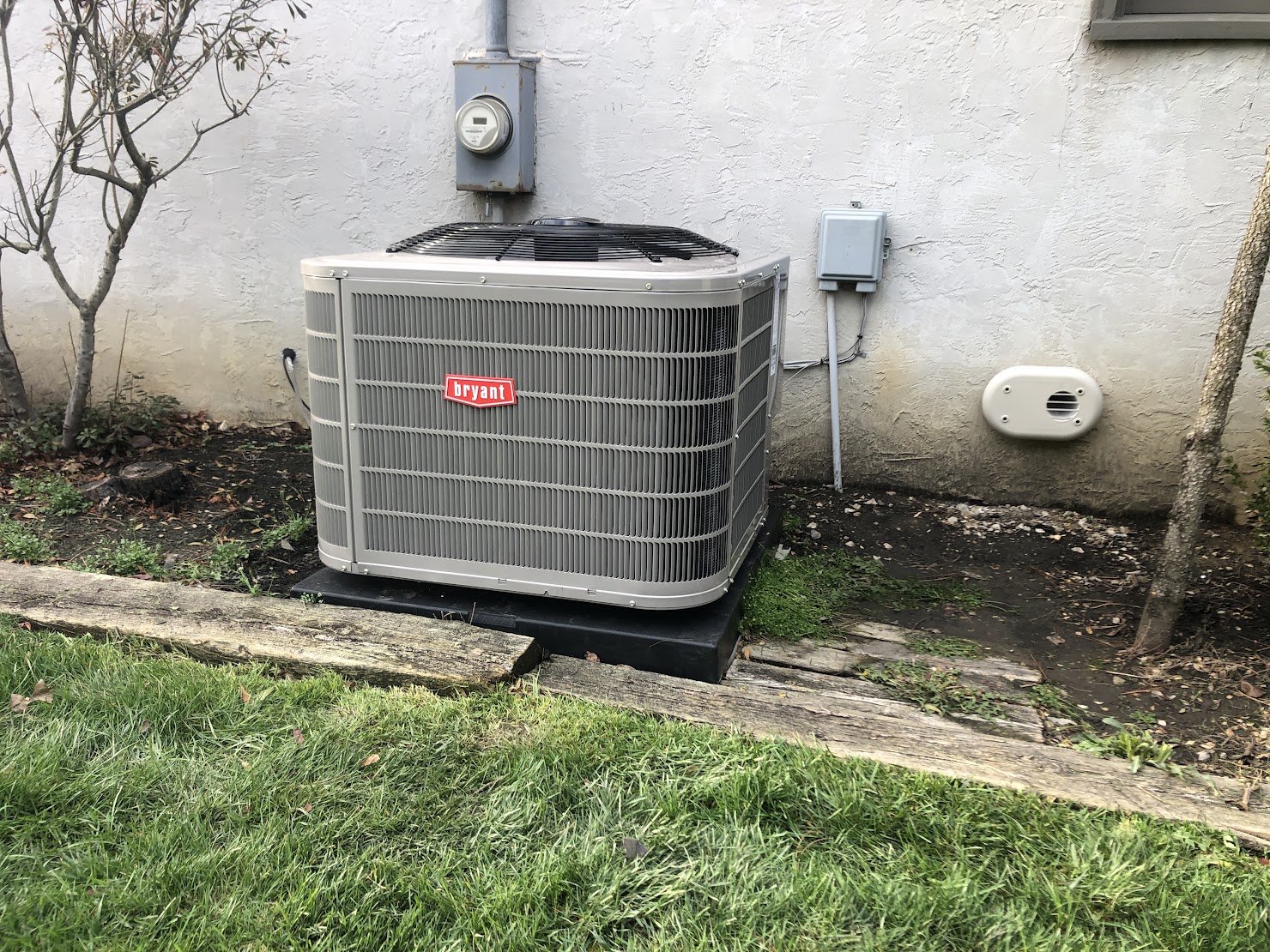As energy costs continue to rise, finding effective ways to reduce your energy bills has become a top priority for homeowners. One of the most effective strategies is optimizing your HVAC (Heating, Ventilation, and Air Conditioning) system with smart solutions. Smart HVAC technology not only enhances your home’s comfort but also offers significant energy-saving benefits. In this guide, we’ll explore various smart HVAC solutions that can help you save money while keeping your home comfortable year-round.
Understanding Smart HVAC Technology
What Is Smart HVAC?
Smart HVAC refers to the integration of advanced technology into heating and cooling systems, allowing homeowners to control their HVAC units remotely and automatically. Smart HVAC systems often include programmable thermostats, smart sensors, and advanced analytics that optimize energy usage based on real-time conditions and preferences. These innovations enable you to maintain a comfortable indoor environment while minimizing energy waste.
Benefits of Smart HVAC Systems
- Energy Efficiency: Smart HVAC systems are designed to optimize energy usage, reducing unnecessary energy consumption.
- Remote Control: Homeowners can manage their HVAC systems from anywhere using smartphones or smart home devices, offering convenience and flexibility.
- Improved Comfort: These systems adjust automatically to maintain optimal temperature and humidity levels, ensuring a comfortable living environment.
- Data Monitoring: Smart HVAC solutions provide insights into energy consumption, helping homeowners identify trends and areas for improvement.
Smart HVAC Solutions to Reduce Energy Bills
1. Install a Smart Thermostat
A smart thermostat is one of the most impactful upgrades you can make to your HVAC system. Unlike traditional thermostats, smart thermostats learn your heating and cooling preferences and adjust settings accordingly.
Features of Smart Thermostats
- Learning Algorithms: Smart thermostats analyze your habits over time, adjusting the temperature based on your schedule. For example, if you typically leave home during the day, the thermostat will learn to lower the temperature during those hours and raise it before you return.
- Remote Access: Control your thermostat from anywhere using a mobile app, allowing you to adjust settings even when you’re not home. This feature is particularly useful if your plans change and you return home earlier or later than expected.
- Energy Reports: Receive monthly reports on energy usage, helping you identify patterns and areas for improvement. Many smart thermostats will also suggest ways to save energy based on your usage.
Energy Savings
Studies show that smart thermostats can save homeowners up to 15% on heating and cooling costs. By optimizing temperature settings based on your habits, they help avoid energy waste.
2. Utilize Smart Sensors
Smart sensors work in conjunction with your HVAC system to monitor conditions in different rooms and adjust settings accordingly. They play a crucial role in ensuring that your HVAC system operates efficiently and that energy is not wasted in unoccupied spaces.
Types of Smart Sensors
- Temperature Sensors: These sensors measure temperature variations in different areas of your home, allowing your HVAC system to ensure even heating and cooling. For example, if one room is warmer than another, the HVAC system can adjust to balance the temperatures.
- Humidity Sensors: Humidity sensors monitor humidity levels and can trigger the HVAC system to run dehumidification processes when necessary, ensuring optimal comfort.
Benefits of Smart Sensors
By using smart sensors, you can prevent overcooling or overheating certain areas, leading to significant energy savings. For example, if a room is unoccupied, the system can adjust its settings to save energy. Some advanced sensors can even communicate with smart thermostats, providing real-time feedback that enhances system performance.
3. Optimize Zoning Systems
Zoning systems allow you to divide your home into different areas, each with its own temperature control. This means you can heat or cool only the rooms you’re using, rather than the entire house.
How Zoning Works
- Dampers: Installed in your ductwork, dampers regulate airflow to specific zones, allowing for customized heating and cooling. For instance, if you have a large home, you might want to cool the bedrooms during the night while keeping the living areas at a higher temperature.
- Smart Thermostats for Each Zone: Each zone can have its own smart thermostat, allowing for customized settings based on the specific needs of that area.
Energy Efficiency Benefits
By heating or cooling only occupied areas, you can reduce energy consumption significantly. Zoning systems can lead to energy savings of up to 30% in larger homes. This solution is particularly effective for multi-story homes or homes with large open spaces that may require different temperature settings.
4. Invest in Energy-Efficient HVAC Systems
If your current HVAC system is outdated, consider upgrading to a more energy-efficient model. Look for units with high SEER (Seasonal Energy Efficiency Ratio) ratings for air conditioning and AFUE (Annual Fuel Utilization Efficiency) ratings for heating systems.
Benefits of Energy-Efficient Systems
- Lower Energy Bills: Energy-efficient systems consume less energy, resulting in lower monthly bills. These systems are designed to use less energy while providing the same level of comfort.
- Tax Incentives: Many energy-efficient models qualify for tax credits or rebates, further reducing the overall cost. Check with local utilities or energy efficiency programs for potential savings.
5. Regular Maintenance and Smart Diagnostics
Regular HVAC maintenance is crucial for ensuring your system operates efficiently. Smart HVAC solutions can facilitate maintenance through diagnostics and alerts.
How Smart Diagnostics Work
- Real-Time Monitoring: Advanced HVAC systems can monitor their performance and alert you to potential issues, such as filter changes or mechanical problems. This proactive approach can prevent costly repairs down the line.
- Predictive Maintenance: Some systems can predict when a part may fail based on usage patterns, allowing you to address problems before they escalate. For example, if a motor shows signs of wear, the system can alert you to schedule repairs.
Importance of Regular Maintenance
Regular maintenance ensures your HVAC system operates efficiently and effectively. A well-maintained system consumes less energy, helping you save on energy bills. Schedule annual professional inspections to keep your system running smoothly.
6. Incorporate Smart Ventilation Systems
Proper ventilation is essential for maintaining indoor air quality and comfort. Smart ventilation systems can improve air quality while minimizing energy consumption.
Features of Smart Ventilation Systems
- Heat Recovery Ventilators (HRVs): HRVs transfer heat from outgoing stale air to incoming fresh air, reducing energy loss. This means that in winter, the heat from the outgoing air pre-warms the incoming air, reducing the heating load on your HVAC system.
- Demand-Controlled Ventilation: These systems adjust airflow based on the number of occupants or indoor air quality measurements, ensuring that fresh air is provided only when necessary.
Benefits of Smart Ventilation
By optimizing ventilation, smart systems can help maintain a comfortable environment while reducing heating and cooling costs. Proper ventilation also helps reduce moisture buildup and indoor pollutants, contributing to better overall air quality.
7. Leverage Smart Home Integration
Integrating your HVAC system with other smart home devices can enhance comfort and energy efficiency. For example, smart lighting can be programmed to work with your HVAC system to reduce energy use.
Examples of Smart Home Integration
- Smart Blinds or Shades: Automatically adjust to block sunlight during hot days, reducing cooling demands. This can prevent heat gain from direct sunlight, lowering the workload on your air conditioning system.
- Smart Lighting: Turn off lights when a room is unoccupied, working in tandem with your HVAC settings to minimize energy use. For instance, if you leave for the day, your smart home system can turn off lights and adjust the temperature accordingly.
8. Educate Your Family
Encouraging energy-saving behaviors among your family members can complement your smart HVAC solutions. Awareness and small changes in daily habits can lead to significant energy savings.
Simple Energy-Saving Tips
- Adjust Thermostat Settings: Encourage everyone to adjust the thermostat instead of manually overriding settings. Remind family members to set the thermostat to a slightly higher temperature in summer and a lower temperature in winter when they’re away from home.
- Close Doors and Windows: Remind family members to close doors and windows to prevent heat loss or gain. Insulating your home by ensuring doors and windows are properly sealed can further enhance energy efficiency.
9. Monitor Energy Consumption
Using smart technology to monitor energy consumption can provide valuable insights into your HVAC system’s performance. Awareness of energy use can lead to more informed decisions about your HVAC settings and usage.
Energy Monitoring Tools
- Smart Plugs: Use smart plugs to track the energy usage of specific devices or appliances, helping you identify which ones consume the most energy. This can lead to changes in usage patterns that further reduce overall energy consumption.
- Energy Management Systems: These systems provide a comprehensive overview of your home’s energy consumption, helping you identify patterns and opportunities for savings. Some systems can even analyze data and recommend changes to improve efficiency.
10. Take Advantage of Off-Peak Hours
Many utility companies offer lower rates during off-peak hours. Adjusting your HVAC usage to take advantage of these rates can lead to significant savings.
Strategies for Off-Peak Usage
- Program Your Smart Thermostat: Set your smart thermostat to heat or cool your home during off-peak hours when rates are lower. Many smart thermostats have scheduling features that make this easy to implement.
- Schedule Appliances: If you have electric water heaters or other appliances, schedule their usage during off-peak hours as well. This collective approach can lead to substantial savings on your overall energy bill.
11. Insulate Your Home Properly
While smart HVAC solutions are essential for reducing energy bills, proper insulation is equally important. Good insulation helps keep conditioned air inside your home, reducing the workload on your HVAC system.
Importance of Insulation
- Temperature Regulation: Proper insulation minimizes heat transfer, keeping your home warmer in winter and cooler in summer. This means your HVAC system won’t have to work as hard to maintain a comfortable temperature.
- Energy Efficiency: Well-insulated homes can save up to 20% on heating and cooling costs. In conjunction with smart HVAC solutions, proper insulation maximizes energy efficiency and comfort.
Investing in smart HVAC solutions is one of the most effective ways to reduce your energy bills while enhancing comfort in your home. From smart thermostats and sensors to energy-efficient systems and proper insulation, there are numerous strategies to optimize your HVAC performance. By implementing these smart solutions, monitoring your energy consumption, and educating your family about energy-saving habits, you can enjoy significant savings on your energy bills while maintaining a comfortable and inviting living environment.







